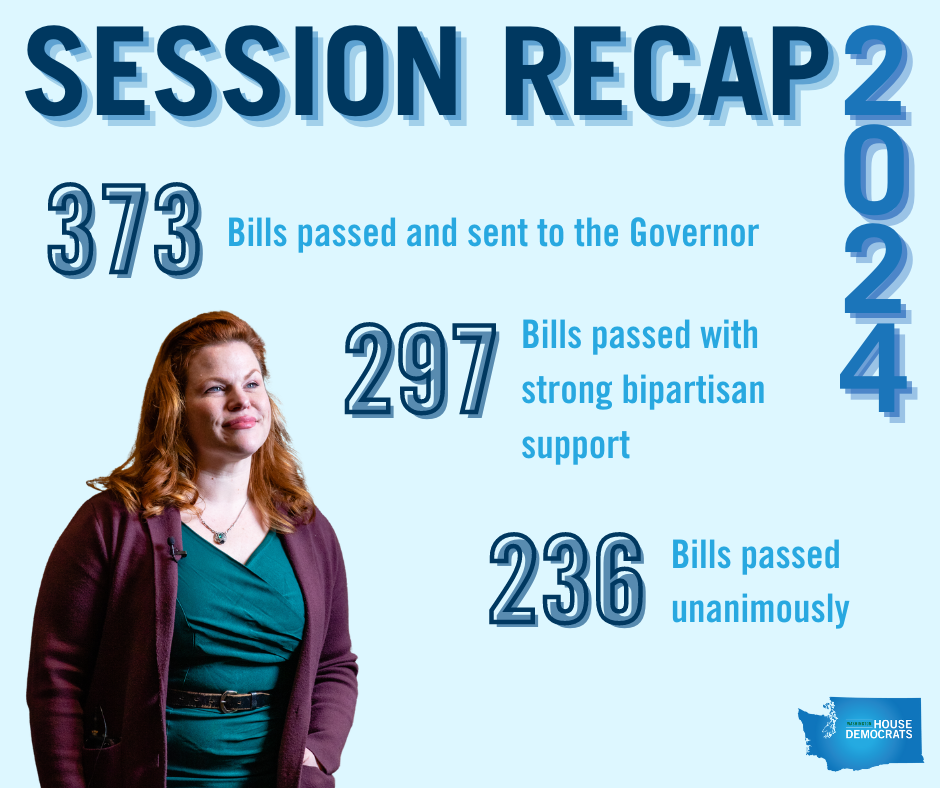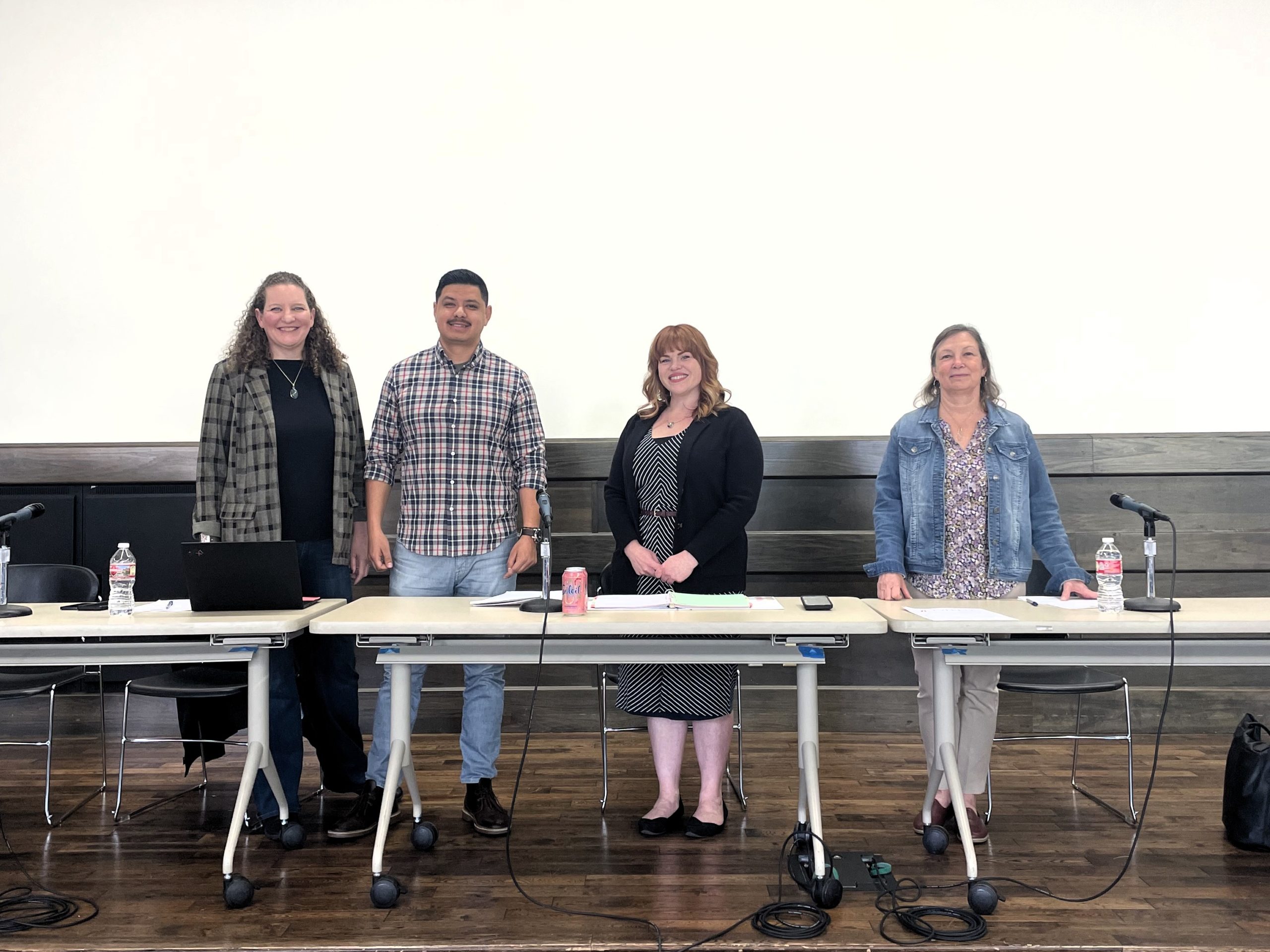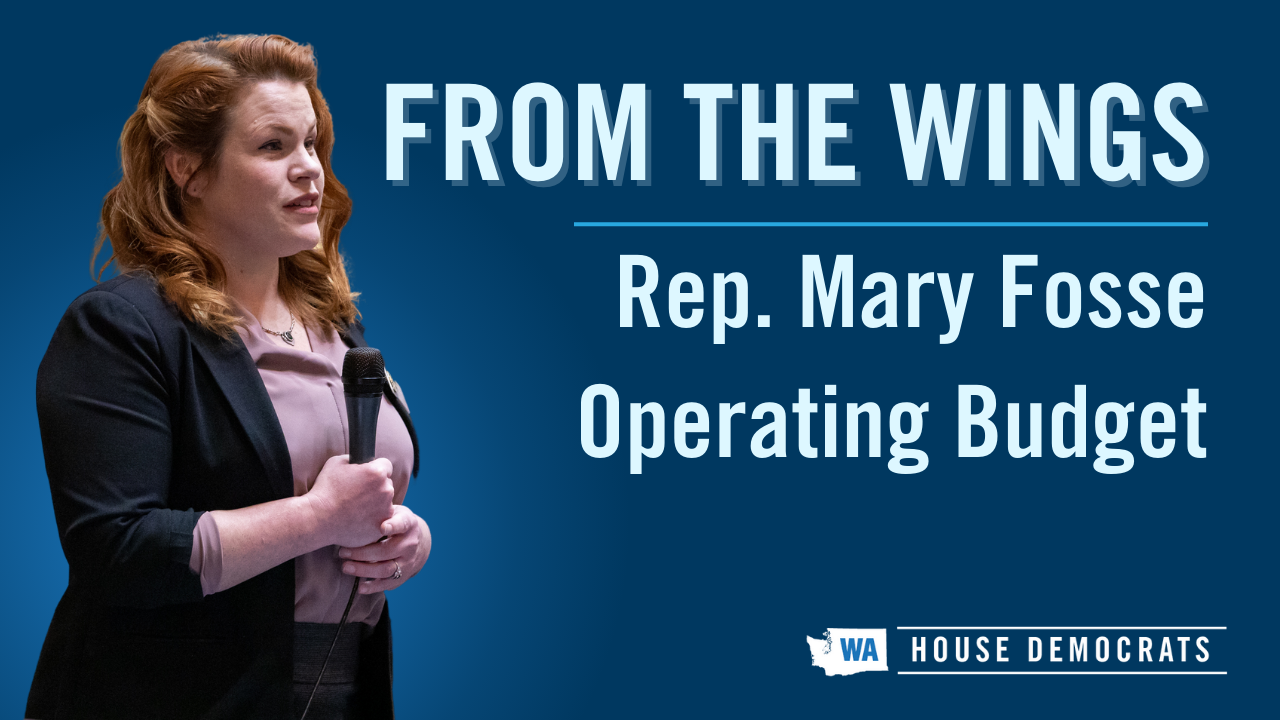Dear neighbors,
The Washington State Legislature concluded its 2024 legislative session last month, and despite it being a short 60-day session, it was a great success, with many policies and budget wins for our community! We ended on time, with a balanced budget, and no new taxes.

Reviewing the 2024 Session
My priorities for the 2024 legislative session included addressing the fentanyl and opioid crisis, increasing access to behavioral healthcare, ensuring a home for everyone, protecting and investing in every child, and ensuring our families, communities, and small businesses have access to a strong economy that provides meaningful opportunities for all.
I’m particularly proud of our work to pass Washington Saves (SB 6069). This legislation, which I co-sponsored in the House, aims to address wealth inequities and the retirement savings crisis in Washington by providing a solution for the roughly 1.2 million workers who lack access to retirement plans. The bill establishes an automatic Individual Retirement Account (IRA) for those without employer-based systems, allowing for easy savings with low management fees. With bipartisan support and backing from the Treasurer, Washington Saves will ensure financial security for all residents as they approach retirement, joining a growing trend among states to tackle this pressing issue.
2024 was also a supplemental budget year representing a critical time to build on economic recovery. This session, my focus remained on families, youth, and education, and achieving significant progress in enhancing childcare accessibility and affordability while bolstering support for our dedicated education workforce.
We secured an additional $335 million for K-12 education, and moved closer towards fully funding special education by increasing the special education cap from 15% to 16% (HB 2180). The legislature allocated $72 million for more paraeducators, because these important workers are crucial for supporting students with disabilities and those requiring extra assistance, alongside $45 million to broaden eligibility for free school meals. In a landmark move, we increased state support for school construction from $271 to $375 per square foot, amounting to a $79 million boost.
Addressing the growing demand for early learning, we passed legislation (HB 2195) to establish a dedicated revenue source for building more facilities and allocated $115 million towards early learning and high-quality childcare. We also simplified eligibility criteria for programs like Working Connections Child Care and ECEAP, ensuring smoother access for families receiving basic food assistance (HB 1945).
Turning to local projects, I was especially proud to support funding for the following in our community and state, recognizing their potential to significantly enhance the daily quality of life for numerous neighbors:
- $2.3 million to improve funding and access to childcare providers who offer nonstandard hours for working families.
- $275,000 to fund a workgroup and study to assess the education and workforce needs of the electrical transmission industry in our state. This will ensure we are prepared for the substantial new transmission capacity needed to meet our population and climate goals.
- $3.6 million in distressed school funding for the Marysville School District to address dire building conditions and ensure our students have a safe place to learn.
- $625,000 in Climate Commitment Act revenue to advance Washington’s role in the Offshore wind supply chain.
- $500,000 for roof repairs at the Everett Labor Temple.
- $30,000 to assemble the Snohomish County Early Learning Coalition’s leadership team to identify ways we can strengthen the early learning community in our county.
- $3.8 million for the Latino Educational Training Institute (LETI) Incubator for Family Success project in Everett. This facility will offer a variety of programs designed to meet the diverse needs of Latino families.
- $122.8 million to address peak congestion along I-5/NB Marine View Dr. and the SR 529 corridor and interchange.
- $68.7 million for an interchange improvement project at I-5/116th St. NE, 88th St. NE and SR 528/Marine Dr.
- $210.5 million for planning, design, right-of-way acquisition, and initial construction related to the rebuild of the US 2 trestle.
- $47.1 million to improve mobility along the SR 526 corridor.
While the things we’ve accomplished this year are incredibly important for our community, I am looking forward to the work ahead. I’m continuing to visit with our neighbors and community partners to hear more about the issues facing our state and what we need to do to solve them.

I love this work and am grateful that you took the time to read about what we’ve been working on. Thank you for staying engaged! I know that together we can make our community a better place to live for generations to come.
In Service,

State Representative Mary Fosse

